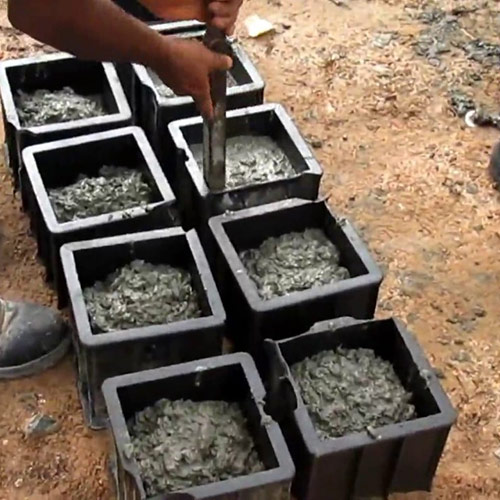What is the cube test for RCC?

we will delve into the details of this important test used in the construction industry to ensure the strength and durability of concrete structures. Let’s explore the cube test for RCC and its significance in determining the quality of concrete.
Understanding the Cube Test for RCC
The cube test is a widely used method to determine the compressive strength of concrete. In this test, standard concrete cubes of specified dimensions are cast and cured under controlled conditions. After the curing period, typically 28 days, the cubes are tested in a compression testing machine to determine their compressive strength.
Significance of the Cube Test
The cube test for RCC is crucial as it helps in assessing the quality of concrete used in construction projects. The compressive strength of concrete cubes provides valuable information about the suitability of the mix design, quality of materials, and curing conditions. It is an essential quality control measure to ensure that the concrete meets the desired strength requirements for the intended application.
Conducting the Cube Test
To conduct the cube test for RCC, the following steps are typically followed:
- Preparation of Concrete Cubes: Standard concrete cubes with dimensions of 150mm x 150mm x 150mm are cast from the fresh concrete mix.
- Curing: The cubes are cured in a moisture-controlled environment for the specified duration, usually 28 days.
- Testing: After the curing period, the cubes are tested in a compression testing machine to determine their compressive strength.
- Calculating Results: The compressive strength of the concrete cubes is calculated by dividing the maximum load applied during the test by the cross-sectional area of the cube.
Interpretation of Results
The results of the cube test provide valuable insights into the quality of concrete used in construction projects. The compressive strength of the concrete cubes should meet the specified requirements as per the design standards. Any deviations from the desired strength may indicate issues with the mix design, materials, or curing practices, requiring corrective measures to be taken.
Importance of Quality Control
The cube test for RCC plays a significant role in quality control in the construction industry. By ensuring that the concrete used in structures meets the required strength standards, it helps in enhancing the durability and safety of buildings and infrastructure. Regular testing and monitoring of concrete quality through the cube test are essential to deliver successful construction projects.
The cube test for RCC is an essential procedure to determine the compressive strength of concrete used in construction. By following standardized testing methods and interpreting the results accurately, engineers and construction professionals can ensure the quality and durability of concrete structures. Conducting regular cube tests and adhering to quality control measures are essential steps to achieve reliable and long-lasting construction projects.
